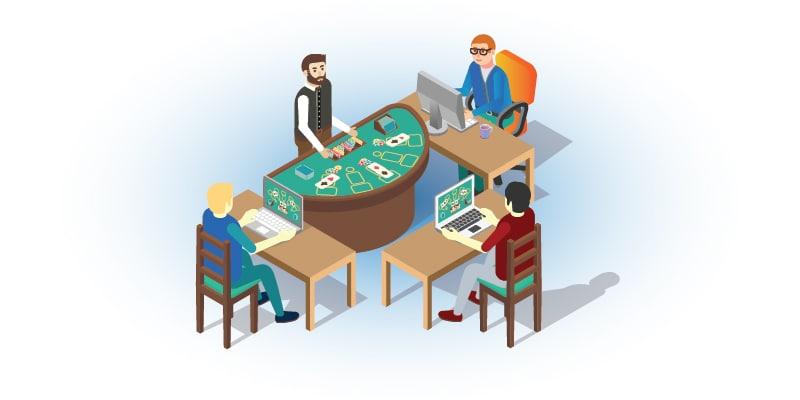Latest Survey: UK University Students Borrow Money To Gamble
The study was carried out by Censuswide, an independent market research consulting firm, with 2,000 UK students aged 18 and over between 13.12.21 and 20.12.21 found that 80% of them had gambled, and 41% admitted that gambling affected their study in university, including skipping lectures, deadlines, and social activities.
Independent research conducted by Censuswide, commissioned by GAMSTOP - the national online self-exclusion program, and the Young Gambling and Player Education Foundation (YGAM) - an education charity to protect vulnerable people from gambling and game-related harms.
Survey Results with 2,000 UK University Students

The survey found that more than a third (35%) are using money from student loans, overdrafts, borrowed from friends, or took out short-term loans to help finance their gambling. Nearly one in five (19%) admitted using student loans to gamble.
The average student gambling spending is £31.52/week, and almost a fifth (18%) admits spending more than £50/week. Meanwhile, 45% pay no more than £10/week. Nearly four in ten (38%) say they gamble at least once a week, with 63% gambling at least once a month.
Other survey figures include more than a quarter (28%) gambling as often, or more often than before the pandemic, and 29% have spent more or more than before the pandemic.
The most popular gambling genres during the pandemic are National Lottery (32%), online sports betting (25%), and online Bingo (18%).
Almost half of the students who gamble (46%) say that making money is their motivator and the most common reason given by a quarter (25%) is that they like taking risks.
In addition, more than half (52%) say gambling makes them feel excited, and a third (33%) say it makes them happy, while one in five (21%) say it feels anxious.
More than a third (36%) of students who gamble have invested in crypto in the past 12 months, compared with 17% of non-gambling students.
Students also revealed that their friends influence their gambling (34%), with almost a quarter (23%) being most influenced by social media and 14% affected by ads.
The new study on student gambling is the first published since the pandemic and follows a survey commissioned by YGAM in 2019. An earlier report conducted by Red Brick Research showed that 264,000 students in the UK are at some risk from the gambling effects, with around 88,000 students showing signs of addiction.
Bray Ash, 29, is studying mental health nursing at King's College London, previously attended the University of Leeds, and experienced the harmful effects of gambling while in college. He said: “When you first go to college, and you have student finances, money from your parents, and other financial support, you may be tempted to gamble recklessly. It took over my life! I don't study, I just gamble in the hallway. In my sophomore year of college, I gambled on my student loans for the first 24 hours."
Fiona Palmer, CEO of GAMSTOP, said: “Gambling-related harm on our campus is a topic that is rarely addressed but for any student who has a problem with their gambling, self-exclusion can give them valuable breathing space while seeking extra help. With online gambling growing in popularity during the pandemic, research shows the importance of raising awareness of a free online self-exclusion service that is accessible to all.”
Daniel Bliss, Director of External Affairs at YGAM, said: “This study provides us with some valuable insights into student behavior during the pandemic. We look forward to building on this piece of work to understand better how our programs can protect and support students. The findings reiterate the importance of educating our youth about the risks and harms of gambling. Education is a powerful tool to ensure students are equipped with the knowledge and understanding to help prevent harm.”
Gambling Addiction Support Programs and Tools

Following the report's release, YGAM is partnering with GAMSTOP and RecoverMe, an app that provides self-help tools for people with problem gambling, to launch an awareness campaign about the harmful effects of gambling among students and promote support for students who may be struggling.
During the "Gambling Support University Tour", three organizations will visit university campuses across the UK to speak to students and university staff. YGAM will also provide City & Guilds guaranteed training courses to university teams to equip them better to support students. You can learn more about the "Gambling Support University Tour" by contacting [email protected].
















